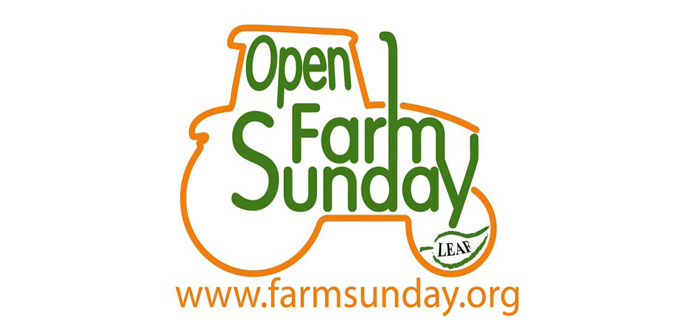LEAF (Linking Environment And Farming) is calling on pig farmers to join together on LEAF Open Farm Sunday (LOFS) on June 9 to build public support and loyalty for British produce
Since LEAF Open Farm Sunday (LOFS) started in 2006, the public appetite to see behind the scenes of working farms has increased rapidly.
Nearly 300,000 people visited an event last year and 89% of those surveyed said that they had a more positive view of farming after visiting a farm, while more than 70% were also making more conscious decisions when buying food.
“With the lack of clarity surrounding markets and politics, communicating with the public is more important than ever to build support for the industry,” said LOFS manager Annabel Shackleton. “Pig farmers’ commitment to improving efficiency and animal welfare deserves recognition by consumers and everyone in the production chain. By publicly showcasing this, LEAF Open Farm Sunday can play a big part in helping to safeguard the future of our higher-welfare British pig industry.”
You can start small, like Pockthorpe Hall in Yorkshire, which had an invitation-only day in its first year, ensuring that owners, the Morgan family, knew who was coming and that visitors had not been on another pig unit recently.
The Morgans offered three time slots with a general walk around the unit, making sure it not only informed and entertained the children, but the adults learned something too.
“Although we live in the countryside, it doesn’t mean that everyone knows what happens on a farm,” said Kate Morgan. “We are all very busy in our day-to-day jobs, but this is one thing everyone should make time for. These children are our consumers of the future and we must all invest time in them.”
Mark Coulman runs a 235-hectare pig and arable enterprise in Lincolnshire, with 2,000 fattening pigs. He hosted LEAF Open Farm Sunday for the first time in 2017 and involved the local community.
“We were keen to give visitors a broad flavour of our farm as well as farming in general,” he said. “Family and friends were a big help on the day and we also approached RSPB and FWAG, who ran guided nature walks.
“The local Farmcare farm lent us some of their farm machinery and one of their staff drove the tractor for the trailer ride. Our local butcher lent us some of his sheep and the local school parent teacher association ran refreshments. Our regional land agency, J H Walter, kindly sponsored printing our event details onto the flyers.
“I would also urge any farmer to make the most of the free resources from LEAF, including the Science on the Farm posters. Any concerns about health and safety were addressed in the handbook.”
Mr Coulman used social media to promote the event, mostly Facebook with some Twitter posts, and received some good local press coverage as a result.
“We received so much positive feedback and it was good to know that visitors really appreciated the day and now have a much better idea of what we do,” he said.
“It makes sense to talk to your customers and good business sense to put yourselves in the spotlight of your local community.”
LEAF Open Farm Sunday is a free event, but many hosts use it as an opportunity to raise money for a charity, promote a diversified business or sell home-grown products.
Hundreds of farmers across the UK have already committed to opening their gates this June to show visitors how their food is produced and why farming matters.
However, LOFS needs even more farms to get involved to satisfy the public’s growing interest and to share the farming story positively for the benefit of the whole industry.
To find out how to get involved and to register, click HERE.
Biosecurity top tips
Although biosecurity is a major issue for pig farmers, it doesn’t have to be onerous. Encourage visitors to take personal responsibility for their own and their family’s safety while visiting your farm, with clear signage and washing facilities.
- Provide basic hand-washing facilities with running water(cold or hot), liquid soap and paper towels;
- Put foot baths in all appropriate areas, with signs to show people what to do, when and why;
- Clearly mark areas of the farm where visitors are not permitted;
- Provide signage giving information on the level of animal contact permitted; and
- Supervise animal contact areas and separate them from eating areas.




